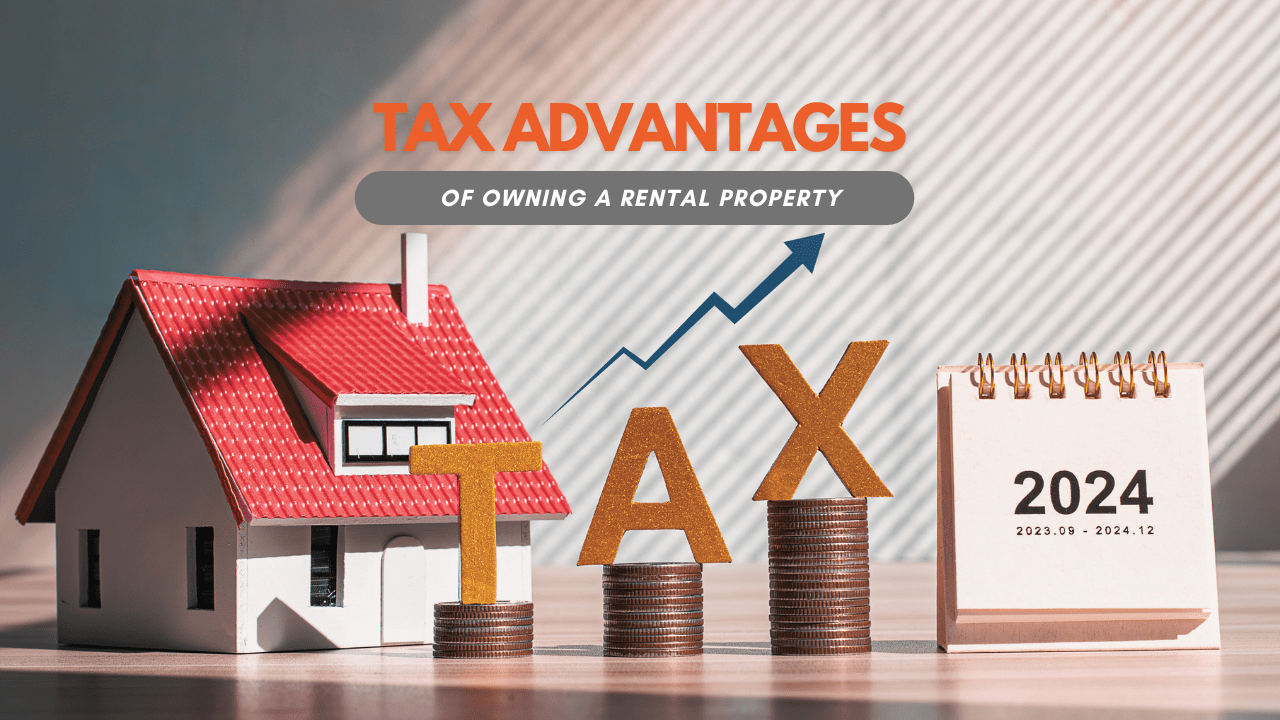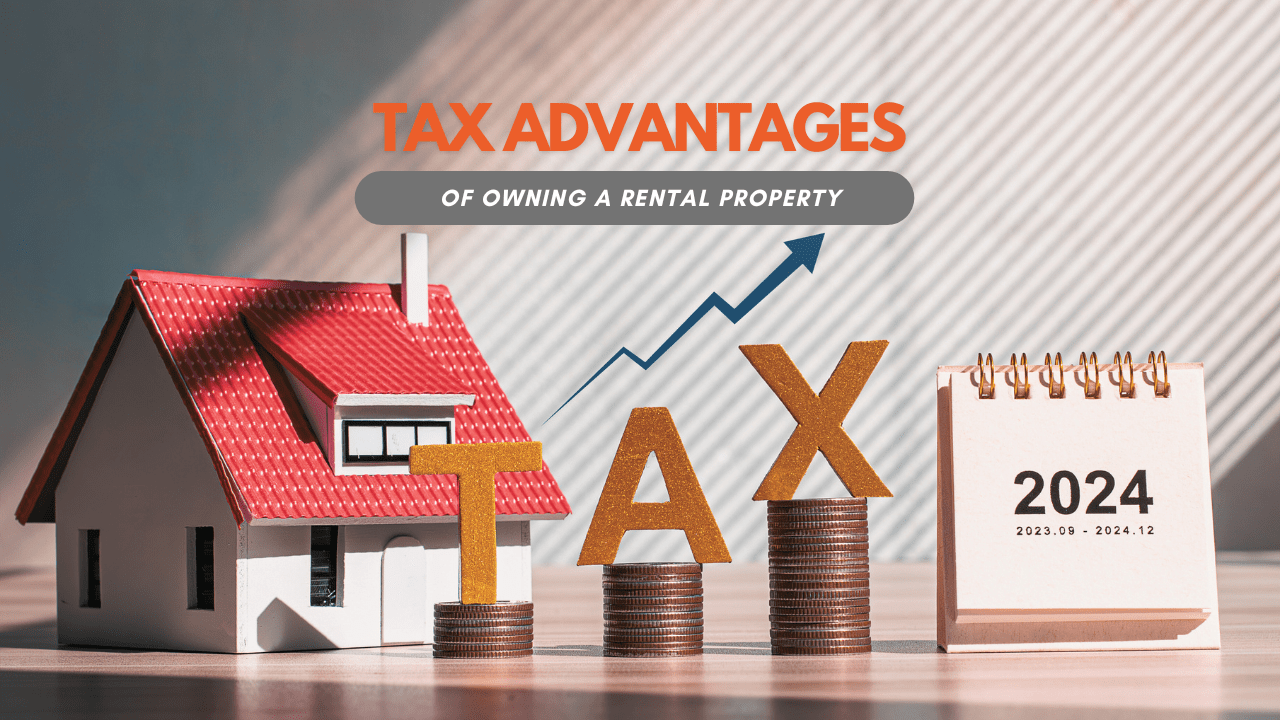
Albert Einstein, not exactly known for being an intellectual slouch, famously said: “The hardest thing in the world to understand is the income tax."
He’s not entirely wrong, and if you’re like most Americans, tax time brings on bouts of stress and frustration.
If you’re a real estate investor, you do have to declare the income you earn from your rental properties. It’s taxable. The good news, however, is that there are plenty of deductions and write-offs that can offset what you’ve earned, reducing your tax liability and the amount you owe the government.
Protect yourself and your money by working with a great CPA or tax accountant who can help you understand what you can and cannot do with your investment properties at tax time. You’ll want to talk with your Atlanta property manager, too. We provide our property owners with all the statements and documentation they need when it’s time to file taxes.
Here are some of the tax advantages that you don’t want to miss.
Tax Benefits for Depreciation of Atlanta Rental Properties
What do you know about depreciation? It’s a valuable tax tool for real estate investors and rental property owners, but it comes with some specific rules and details and you want to make sure you’re making the right deductions. The depreciation benefit allows you to write off part of the loss of value that any property experiences as it ages.
You might have plans to improve your property over time, especially if you want to increase what you earn, but the IRS sees properties as consistently undergoing deterioration. The wear and tear you’re your rental property can expect to take on will turn into your depreciation loss. The IRS has established 27.5 years as the amount of time that residential property depreciations under its General Depreciation System.
You can accelerate the depreciation loss with your rental property, which will help you lower your taxable income for the year at tax time.
Report the depreciation of your rental property on Schedule E of a standard 1040. If you’re in a situation where you would use another form, check with your tax professional. You’ll also want to use Form 4562 if you claim depreciation on a property in the year that you put it into service as a rental home.
To claim depreciation as a deduction on your taxes, the following conditions are required:
Unless you meet one of the very limited exceptions, you must own the property for which you are claiming depreciation.
You need to collect rent. The property has to be an income-producing property.
You must be able to determine the useful life of your property. It’s going to be different based on the type of property being depreciated. Everything has a different life cycle, or rate at which it wears down. For real estate, this is somewhat standardized and the 27.5 years applies, unless your property is subject to the Alternative Depreciation System, in which case it’s 30 or 40 years (this is rare).
The useful life of the property must be greater than 1 year. Nothing that wears out in less than a year can be depreciated on your taxes.
If you begin renting out a home in one year and sell it within that same year, you cannot claim depreciation on that property.
Expenses Associated with Maintaining Your Rental Property are Deductible
You’re running a business when you rent out a home, and that means the IRS allows you to deduct some of the expenses you incur while running that business. There are a few things you should always take advantage of when you’re claiming tax benefits, including:
Insurance premiums that you pay on your investment properties.
Professional Atlanta property management fees.
Additional professional fees such as accounting or legal costs.
Home office deductions, if you use your home to conduct rental property business.
Travel costs involved in visiting your rental properties.
Only deduct the ordinary and necessary expenses for managing and maintaining your rental property and preserving its value and condition. Paying to advertise and market a vacant property, for example, is a necessary expense, so you can deduct any advertising costs. Your landlord insurance is tax deductible and so is the cost of keeping utilities on.
Maintenance costs are deductible as well, but make sure you’re only deducting for maintenance, and not for anything that might be considered an improvement. The costs of materials and supplies when you’re maintaining your home are deductible. Anything that needs to be done to keep your property in good condition is acceptable.
However, you may not deduct the cost of improvements. According to the IRS, the rental property is improved only if the amounts paid are for a betterment or restoration or adaptation to a new or different use.
This can be confusing, even to experienced investors. We always direct people to the IRS.gov website, which actually has an informative section called Tangible Property Regulations - Frequently Asked Questions. If you’re unsure about whether you’re deducting a maintenance cost or a home improvement cost, you might find your answers there. Those improvement costs are recovered through the depreciation deduction.
Another Advantage is the 1031 Exchange
You can access tax benefits even outside of filing deductions. For example, have you thought about what you’ll pay in capital gains taxes when you sell a rental property?
Your investment doesn’t qualify for the gain on sale exclusion in the tax code, which is why this is one tax area where most owners lose money. You’ll earn a profit when you sell, and the government will want some of that profit.
With rental property sales, you’ll pay long term capital gains taxes on any properties you’ve owned for more than a year and the rate depends on your income.
If you want to defer those capital gains taxes, you might want to consider a 1031 Exchange. In this scenario, you’ll sell one rental property and then use the proceeds to invest in a similar property or a series of properties. It won’t wipe away your tax liability entirely, but it will give you the opportunity to strengthen your investment portfolio and delay paying those taxes.
There’s a strict timeline involved, and you have to make sure the money from the sale is held in escrow, which is managed by an intermediary. These are the steps you’ll want to follow to effectively complete a 1031 exchange:
Confirm your property qualifies for this program. It’s a tax benefit meant for investment homes. You cannot sell the home you’ve been living in and reinvest the money to buy a vacation home, for example.
You’ll need to exchange the existing property with a like property or properties. The new property you choose must have a value that is the same or higher than the original property.
Find one property, two properties, or three to exchange with your current property.
There are deadlines. You’ll need to identify a replacement property within 45 days of selling your original property. Then, you have 180 days to close on the new sale. The entire exchange must take place within 180 days (meaning you don’t have 45 days plus 180 days – the clock does not reset).
Use an intermediary and don’t take any of the cash from the sale of your property. The intermediary will hold your funds until they can be reinvested in your new purchase. Ask your property managers for a referral.
If this makes sense for you, we always urge owners to consider doing it. Maybe you’re looking to release a property that isn’t working for your investment goals anymore. Instead of taking the profit in cash, re-invest those funds. It brings you a better tax benefit.
Accessing Tax Benefits Requires Excellent Financial Reporting and Record Keeping
 The best way to run into tax problems is to not document everything.
The best way to run into tax problems is to not document everything.
We don’t recommend that.
Keeping good records is critical when it comes to reporting and understanding your taxes. Hopefully, you’re working with an Atlanta property management team that can provide monthly income and expense statements. You’ll need a 1099 when it’s time to file. A good system of record keeping will help you monitor the progress of your rental property, prepare your financial statements, identify the source of receipts, keep track of deductible expenses, prepare your tax returns, and support items reported on tax returns.
Before you can deduct some of your rental property expenses, you’ll be expected to substantiate them. Keep track of all your expenses, including travel expenses and management fees. Good records lead to valid tax returns. The IRS is strict about documentation and paperwork, and you don’t want to find yourself facing additional penalties and fees just because you cannot produce the right documents.
For some people, taxes are a breeze and just a necessary part of owning investment property. If you find yourself struggling and you have questions about taxes and how they apply to your rental property, please don’t hesitate to contact us at Property Services of Atlanta.

 Owner Portal
Owner Portal




